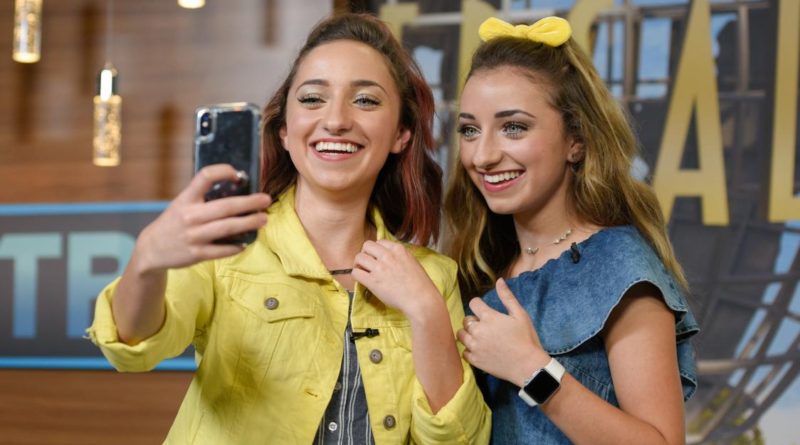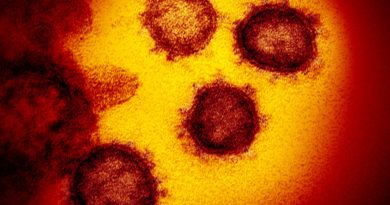What happens when college social media influencers get COVID-19?
Social media stars Brooklyn and Bailey McKnight shared an unusually serious message with their millions of fans on Instagram last month.
Rather than modeling new outfits, promoting their YouTube content or posting wholesome snaps of themselves with family and friends, the identical twins announced that they had tested positive for COVID-19.
“We are aware this is going to raise a lot of questions,” said the McKnights in an Instagram post that has so far garnered more than 350,000 likes.
The twins had recently returned to Baylor University, a private institution in Waco, Tex., which is offering a mix of in-person and online classes. But the McKnights stressed that it was “NOT due to in person classes” that they became infected. The institution has “taken every precaution, including mandating masks, requiring students to test negative before coming back to school, and many, many more precautions,” they said.
The influencers said they had been “unbelievably careful” — wearing masks in public, limiting the number of people they come into contact with and following social distancing guidelines. They encouraged others to do the same in their post. Though Brooklyn traveled to Utah in early August to film a series of YouTube videos where she went on 10 dates in 10 days, the twins reasoned this could not have been the cause of their infection, as she tested negative for the coronavirus on her return.
“So this raises the question … how did we catch it? Brooklyn and I live with two other roommates, who have also been unbelievably careful. Baylor is contact tracing every positive case, and unfortunately both roommates were listed as contacts by someone who tested positive,” said the McKnights in their Instagram post. “Both were asked to quarantine at home and to stop attending classes. Within a few days 3/4 of us in our house started showing symptoms and immediately went to get tested.”
After they shared their announcement on social media, speculation began online that Baylor had played a role in shaping the twins’ Instagram post. The twins sometimes post content sponsored by the university — a growing trend in higher ed marketing. The McKnights did not respond to a request for comment, but a Baylor University representative denied that the institution had influenced the influencers’ announcement in any way.
Baylor has had a marketing relationship with the twins since 2017, prior to their arrival on the university’s campus as freshmen, said Jason Cook, vice president of marketing and communications and chief marketing officer at Baylor University, in an email. The twins are paid to post once or twice per semester promoting the university, he said.
“We have been up front and visible in our marketing relationship with the twins, with sponsored posts indicated in accordance with FTC guidelines,” said Cook. “Brooklyn and Bailey have helped introduce Baylor University to an entirely new generation of prospective students who may have never heard of the university previously. With Gen Z, these students need to see themselves through others, and Brooklyn and Bailey provide glimpses into college life each and every week.”
Cook added that the twins applied to the university through the normal admissions and financial aid processes.
The twins are not “COVID-19 influencers” and have not been involved in any way in the university’s safety campaign, said Cook.
“Our COVID-19 safety campaign, Family First, features our mascots, Bruiser and Marigold,” he said. “Brooklyn and Bailey are not COVID-19 influencers for Baylor. With that said, like all other Baylor students, they are required to wear face masks and follow other university guidelines on campus at all times. If you look at their non-Baylor-sponsored content, however, they have promoted COVID-19 prevention strategies on their own, independent of Baylor.”
Since the beginning of August, Baylor has conducted more than 26,600 tests, with 888 people testing positive for the virus, according to a university dashboard for positive COVID-19 cases reviewed on Sept. 8.
Baylor is running an “extensive contact tracing process,” said Cook. When a student receives a positive test result, they are sent into self-isolation in a university-provided space for on-campus students, or their own private residence for off-campus students, he said. Cook added that students cannot “test out” of isolation or quarantine. They must remain in isolation for 10 days after a positive test or in quarantine for 14 days after contact with a positive individual, he said.
While some students have been vocal complaining online about how their university is enforcing COVID-19 safety practices, students with large social media followings are unlikely to disparage their institution’s reputation, said Steve App, business development manager at Campus Sonar, a higher education marketing company. That’s true even if they do not have a paid relationship with their university, because it may discourage other brands from working with them, he said.
“Brooklyn and Bailey are really in a league of their own when it comes to college influencers. They have 6.9 million YouTube subscribers. Most college influencers have maybe a couple of hundred thousand,” App said. The twins, like many influencers, have built a brand that centers on positivity — promoting happiness and healthy habits. Complaining doesn’t fit with the brand that they have built, App said.
“It’s students who are not influencers who are probably the greater risk to universities right now,” App said. “This is probably the hardest year ever to be a social media manager, certainly for higher education. They’re on the front lines — facing nonstop questions, accusations, criticisms,” he said.
Videos of students sharing terrible cafeteria food or outing irresponsible classmates on platforms such as TikTok and Reddit create a real challenge for social media managers. But students are organically sharing good messages, too, App said. He pointed to a recent video of a student returning to Notre Dame University, where she documented the contents of a welcome pack containing a thermometer, sanitizer and masks.
“Institutions are sometimes waiting for influencers to post something negative, but if an institution is doing the right thing, if the messaging around in-person campus plans is clear, that can really help in terms of spreading a positive message,” said App.




